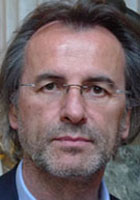Studying at the University of Verona
Here you can find information on the organisational aspects of the Programme, lecture timetables, learning activities and useful contact details for your time at the University, from enrolment to graduation.
Academic calendar
The academic calendar shows the deadlines and scheduled events that are relevant to students, teaching and technical-administrative staff of the University. Public holidays and University closures are also indicated. The academic year normally begins on 1 October each year and ends on 30 September of the following year.
Course calendar
The Academic Calendar sets out the degree programme lecture and exam timetables, as well as the relevant university closure dates..
| Period | From | To |
|---|---|---|
| Sem. IA | Sep 25, 2017 | Nov 11, 2017 |
| Sem. IB | Nov 13, 2017 | Jan 20, 2018 |
| Sem. IIA | Feb 26, 2018 | Apr 21, 2018 |
| Sem. IIB | Apr 23, 2018 | Jun 9, 2018 |
| Session | From | To |
|---|---|---|
| Sessione Invernale | Jan 22, 2018 | Feb 24, 2018 |
| Sessione Estiva | Jun 11, 2018 | Jul 28, 2018 |
| Sessione Autunnale | Aug 27, 2018 | Sep 22, 2018 |
| Sessione Straordinaria | Jan 14, 2019 | Feb 16, 2019 |
| Session | From | To |
|---|---|---|
| Sessione Estiva | Jul 16, 2018 | Jul 21, 2018 |
| Sessione Autunnale | Nov 12, 2018 | Nov 17, 2018 |
| Sessione Primaverile | Apr 1, 2019 | Apr 6, 2019 |
| Period | From | To |
|---|---|---|
| All Saints Day | Nov 1, 2017 | Nov 1, 2017 |
| Immaculate Conception | Dec 8, 2017 | Dec 8, 2017 |
| Christmas break | Dec 22, 2017 | Jan 7, 2018 |
| Easter break | Mar 30, 2018 | Apr 3, 2018 |
| Liberation Day | Apr 25, 2018 | Apr 25, 2018 |
| Labour Day | May 1, 2018 | May 1, 2018 |
| Patron Saint Day | May 21, 2018 | May 21, 2018 |
| Republic Day | Jun 2, 2018 | Jun 2, 2018 |
| Summer break | Aug 13, 2018 | Aug 18, 2018 |
Exam calendar
Exam dates and rounds are managed by the relevant Humanistic Studies Teaching and Student Services Unit.
To view all the exam sessions available, please use the Exam dashboard on ESSE3.
If you forgot your login details or have problems logging in, please contact the relevant IT HelpDesk, or check the login details recovery web page.
Should you have any doubts or questions, please check the Enrollment FAQs
Academic staff

Longo Mario
 mario.longo@univr.it
mario.longo@univr.it
 045 8028393
045 8028393
 linda.napolitano@univr.it
linda.napolitano@univr.it
 domenico.secondulfo@univr.it - domenico.secondulfo3@gmail.com
domenico.secondulfo@univr.it - domenico.secondulfo3@gmail.com
Study Plan
The Study Plan includes all modules, teaching and learning activities that each student will need to undertake during their time at the University.
Please select your Study Plan based on your enrollment year.
1° Year
| Modules | Credits | TAF | SSD |
|---|
2° Year activated in the A.Y. 2018/2019
| Modules | Credits | TAF | SSD |
|---|
| Modules | Credits | TAF | SSD |
|---|
| Modules | Credits | TAF | SSD |
|---|
| Modules | Credits | TAF | SSD |
|---|
Legend | Type of training activity (TTA)
TAF (Type of Educational Activity) All courses and activities are classified into different types of educational activities, indicated by a letter.
Hermeneutics and Linguistic Practies (M) (2017/2018)
Teaching code
4S003311
Teacher
Coordinator
Credits
6
Language
Italian
Scientific Disciplinary Sector (SSD)
M-FIL/01 - THEORETICAL PHILOSOPHY
Period
Sem. IIA dal Feb 26, 2018 al Apr 21, 2018.
Learning outcomes
The programme aims to encourage hermeneutic readings of philosophical texts by having students work directly on this technique during lessons. Therefore students will be required to express their own thoughts as well as listen to others' interpretations in the group activities directed by the course teacher.
Este curso de ensenanza se compromete a impulsar una clave de lectura hermenéutica de los textos filosòficos, a través de un trabajo directo en aula por parte de los estudiantes. Requiere por tanto un esfuerzo en primera persona por parte de ellosa ademàs de la capacidad de comparar otras interpretaciones presentadas en el trabajo en comùn, guiado por la docente.
Program
The teaching programme is divided into the following topic areas:
. Some basics of the hermeneutic tradition within the history of philosophy and some basics of Chines philosophy Anne Cheng, "The history of Chines philosophy)".
. Focus on the texts proposed for a hermeneutic interpretation, i.e. two classics of Chinese philosophy, "Tao te ching" and "Zhuang-zi".
. Classroom exercises on the hermeneutic interpretation of the aforementioned Chinese philosophy classics.
La formaciòn prevé los siguientes argumentos:
. Alguna lieas generales de la tradiciòn hermenèutica en la historia de la filosofìa.
. Analizar los textos sugeridos para la lectura hermenéutica, o sea dos clàsicos de la tradiciòn de la filosofìa china: "Tao te ching" y "Zhuang-zi".
. Introducciòn a la historia del pensamiento chino (Anne Cheng, "Historia del pensamiento chino"). Se aconseya leer dicha historia del pensamiento antes de empezar las classes.
. Pràctica, en clase, de la lectura hermenéutica de lo dos textos clàsicos de la filosofìa china, previamente nombrados.
| Author | Title | Publishing house | Year | ISBN | Notes |
|---|---|---|---|---|---|
| Anne Cheng | Storia del pensiero cinese | Einaudi | 2000 | ||
| J.J.L. Duyvendak (a cura di) | Tao te Ching | Adelphi | 2000 | ||
| Liou Kia-hway (a cura di) | Zhuang-zi | Adelphi | 1992 |
Examination Methods
Students attending the lessons will be assessed on the abilities shown in the hermeneutics exercises performed in class.
Students unable to attend the lessons will be assessed trough an oral examination.
In both cases it is an oral examination to verify the following:
- the depth and fullness of the knowledge gained;
- possession of the language;
-the ability to systematically connect the knowledge;
-analytical and argumentative skills.
The oral examination regards the whole programme.
The final mark is expressed on a scale of 30.
Para los alumnos que asistiràn a clases la evaluaciòn sera en relaciòn a la capacidad demonstrada en clase durante el trabajo hermenèutico.
Para los alumnos que no asistiràn a clases, se les evaluarà con un examen oral.
Type D and Type F activities
Modules not yet included
Career prospects
Module/Programme news
News for students
There you will find information, resources and services useful during your time at the University (Student’s exam record, your study plan on ESSE3, Distance Learning courses, university email account, office forms, administrative procedures, etc.). You can log into MyUnivr with your GIA login details: only in this way will you be able to receive notification of all the notices from your teachers and your secretariat via email and soon also via the Univr app.
Competenze linguistiche
I crediti formativi universitari relativi alle "Ulteriori competenze linguistiche" (B1 informatizzato se seconda lingua; livello B2 completo se stessa lingua della triennale) possono essere acquisiti in una delle due seguenti modalità:
- iscrizione da parte della/o studente presso il Centro Linguistico di Ateneo (CLA ➔ https://cla.univr.it/it/test-e-certificazioni) per il sostenimento e il superamento delle prove + iscrizione, sempre da parte della/o studente, in apposita lista per la registrazione crediti e registrazione CFU (senza presenza) da parte dell’Università.
Oppure
- equipollenza di certificazioni linguistiche esterne: riconoscimento equipollenza di certificazioni linguistiche esterne (➔ https://cla.univr.it/it/servizi/riconoscimento-delle-certificazioni-linguistiche-esterne).
Gestione carriere
Linguistic training CLA
Internships
Graduation
Documents
| Title | Info File |
|---|---|
|
|
pdf, it, 99 KB, 13/10/23 |
|
|
pdf, it, 101 KB, 10/04/24 |
List of theses and work experience proposals
| theses proposals | Research area |
|---|---|
| Linguaggio e mito in Tolkien | ENGLISH LITERATURE - Critical Theory & Poetics |
| Dialettica del negativo in Meister Eckhart | HISTORY OF PHILOSOPHY - MIDDLE AGES |
| La felicità nel Medioevo | HISTORY OF PHILOSOPHY - MIDDLE AGES |
| Le figure di Eva e Maria in Ildegarda di Bingen | HISTORY OF PHILOSOPHY - MIDDLE AGES |
| IA. Una critica fenomenologica al concetto di Intelligenza Artificiale | The Human Mind and Its Complexity: Cognitive science, psychology, linguistics, philosophy of mind - Philosophy of science, epistemology and logic |
Practical information for students
Documents
| Title | Info File |
|---|---|
|
|
pdf, it, 325 KB, 02/05/23 |
|
|
pdf, it, 212 KB, 02/05/23 |
|
|
pdf, it, 131 KB, 02/05/23 |






















